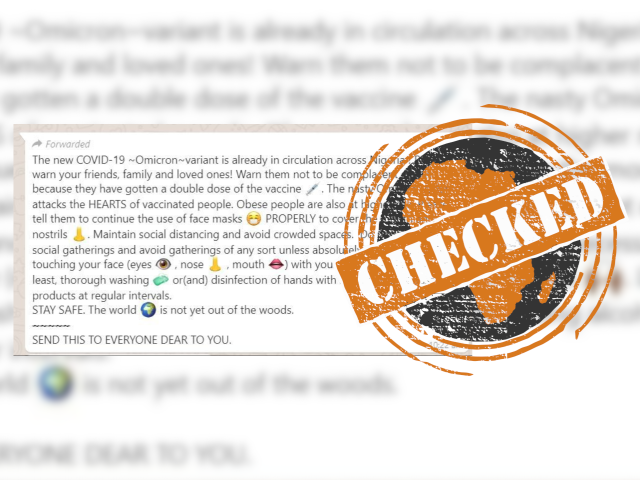IN SHORT: While endometriosis affects about 190 million women of reproductive age across the world, this home remedy is not the cure. Seek medical attention should you experience any of the symptoms in this report.
You can cure endometriosis naturally, according to posts doing the rounds on Facebook in South Africa.
“Does your test results shows it's Endometriosis that is stopping you from concieving? Do this mixture at home and cure yourself by yourself,” the posts say.
Endometriosis is a condition where tissue similar to that which lines the uterus during the menstrual cycle grows outside the uterus.
Women with endometriosis are more likely to have difficulty getting pregnant than women who do not have the condition.
The posts say readers should drink a concoction of six different tropical plants, powders and roots twice a day.
“Put all powdered ingredients in a container, rinse and chop all leaf ingredients and add to the powdered ingredients. Pour in 500ml of boiled water and allow to stay for 10mins,” the posts say.
“You can make in large portions and keep in the fridge. Take it for atleast one month and say goodbye to Endometriosis.”
The same message did the rounds in December 2022 and was shared to public groups with tens of thousands of members.
Africa Check has previously fact-checked false home remedy cures for conditions that cause infertility, but is this claim different?
We checked.

Endometriosis is chronic and can cause mild to severe pain
The World Health Organization (WHO) reports that roughly 190 million women of reproductive age are affected by endometriosis across the world.
The condition is chronic and can cause mild to severe and life-impacting pain during menstruation, sexual intercourse, bowel movements and urination.
Endometriosis can also cause chronic pelvic pain, abdominal bloating, nausea, fatigue and infertility, and sometimes depression and anxiety.
Since tissue grows abnormally outside the uterus, endometriosis most commonly involves the ovaries, fallopian tubes and the tissue lining the pelvis. But in rare cases, the endometrial-like tissue can form beyond the pelvic organs, anywhere in the body, like in the lungs.
The cause of endometriosis is unknown but there are several theories including genetics and a problem with the immune system.
There is no cure, only treatment options for symptoms
Treatment for endometriosis depends on how severe a patient’s symptoms are, their age and future pregnancy plans, says Cleveland Clinic, a non-profit academic medical centre in the US.
But there is no cure for the condition.
Some of the treatments include hormonal options for suppressing endometriosis, such as birth control, over-the-counter medication for pain relief, and surgery.
While less invasive surgeries are also sometimes performed, medical practitioners may recommend a hysterectomy to relieve severe symptoms. Hysterectomy is removing the uterus through surgery, after which a woman no longer menstruates and can no longer get pregnant.
But several studies note that this surgery doesn’t guarantee a complete loss of symptoms and endometrial changes can still occur post-hysterectomy.
There is currently no cure for endometriosis, including false home remedies like the ones posted on Facebook. Instead, these posts may cruelly give women suffering from the condition false hope or dissuade them from seeing a medical professional.
Africa Check could find no evidence that any of these ingredients can cure or even alleviate symptoms of endometriosis.
But there are some things you can do at home to relieve symptoms. These include placing a heat pad on the lower abdomen, massaging the area, having a warm bath and taking a few minutes a day to rest.
Republish our content for free
For publishers: what to do if your post is rated false
A fact-checker has rated your Facebook or Instagram post as “false”, “altered”, “partly false” or “missing context”. This could have serious consequences. What do you do?
Click on our guide for the steps you should follow.
Publishers guideAfrica Check teams up with Facebook
Africa Check is a partner in Meta's third-party fact-checking programme to help stop the spread of false information on social media.
The content we rate as “false” will be downgraded on Facebook and Instagram. This means fewer people will see it.
You can also help identify false information on Facebook. This guide explains how.





Add new comment